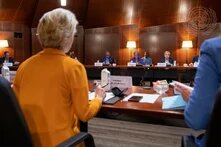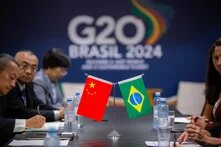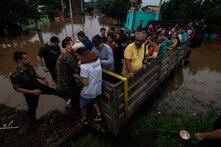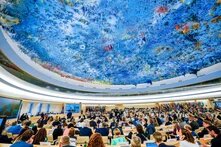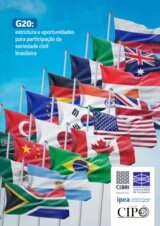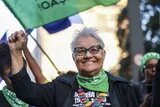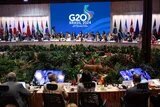G20 in Brazil: Challenges and Opportunities for the Civil Society

Our Point of View on G20
What connects the Heinrich Böll Foundation to the G20?
Our presence in almost all the member countries, with offices and support for various civil society organizations, puts us in a privileged position to accompany and monitor the debates and negotiations within this international space, observing how the themes of democracy, human rights, socio-environmental justice and just energy transition are being addressed.
Since 2008, with the financial crisis and the realization of a multipolar world, the countries of the Global North have lost credibility, requiring agreements with developing nations to deal with crises. Thus, the G20 has become an essential forum for discussing the biggest global economic challenges. Today, solutions to economic and financial problems require reducing inequalities and tackling the climate crisis.
Now, in 2024, with the G20 in Brazil, issues such as global representation, institutional reforms, climate crisis mitigation, debt relief for the Global South and rights in the digital world will be in the spotlight. All this in a year full of important elections around the world.
Regine Schönenberg, director at the Heinrich Böll Foundation in Brazil, and team.
The challenge is to turn words into actions and make the G20 a participatory space

Our interviews on G20
How can civil society contribute to putting crucial issues on the table of the G20 heads of State and build strategic partnerships for a sustainable and fair future?
Boll Pergunta: Mariana Macario, o que é a Aliança Global Contra a Fome? - Fundação Heinrich Böll Brasil
 Watch on YouTube
Watch on YouTube
Mariana Macario, what is the Global Alliance Against Hunger?
Mariana Macario is co-facilitator of WG2 (Food Systems, Hunger and Poverty) of the C20. She is also Public Policy Manager at Ação da Cidadania, holds a Master's degree in Philosophy and General Theory of Law from USP and is a specialist in race relations.
Böll Pergunta: Dra. Rosângela Hilário, how does digital economy work in the Brazilian peripheries? - Fundação Heinrich Böll Brasil
 Watch on YouTube
Watch on YouTube
Dra. Rosângela Hilário, how does digital economy work in the Brazilian peripheries?
Dr. Rosângela Hilário, professor at the Federal University of Rondônia (UNIR), is also a member of the Brazilian President’s Council for Sustainable Economic and Social Development and holds the title of immortal by the Academia de Letras de Rondônia, Sciences and Arts.
Böll Pergunta: Renata Mielli, how can we reduce power asymmetries in the digital world? - Fundação Heinrich Böll Brasil
 Watch on YouTube
Watch on YouTube
Renata Mielli, how can we reduce power asymmetries in the digital world?
Renata Mielli is a journalist, coordinator of the Brazilian Internet Steering Committee (CGI.Br), the first woman to hold the position in the country. Renata is a PhD candidate in Communication Sciences at the School of Communication and Arts at the University of São Paulo (PPGCOM-ECA-USP).
Böll Pergunta: Bruno Bioni, what is the focus of the T20 in Brazil on artificial intelligence? - Fundação Heinrich Böll Brasil
 Watch on YouTube
Watch on YouTube
Bruno Bioni, what is the focus of the T20 in Brazil on artificial intelligence?
Bruno Bioni is director at Data Privacy Brasil, doctor of law and specialist in privacy and data protection.

Building a just world and a sustainable planetOfficial G20 motto in Brazil
Our partners in G20
Find out more about our partners by clicking on them or using the forward button.
Topics of greatest interest to Böll Brazil about this edition of G20
Brazil's presidency of the G20 in 2024 presents unique opportunities and, with them, unprecedented challenges for the Heinrich Böll Foundation's office in Brazil. Our program, comprising the areas of Environmental Justice, Democracy and Human Rights, and Digital Policy, is aligned with the priorities of the groups representing the Civil Society in the G20.
Follow up our work and take part in this collective effort to learn, analyze and monitor the work carried out under the Brazilian presidency of the G20.
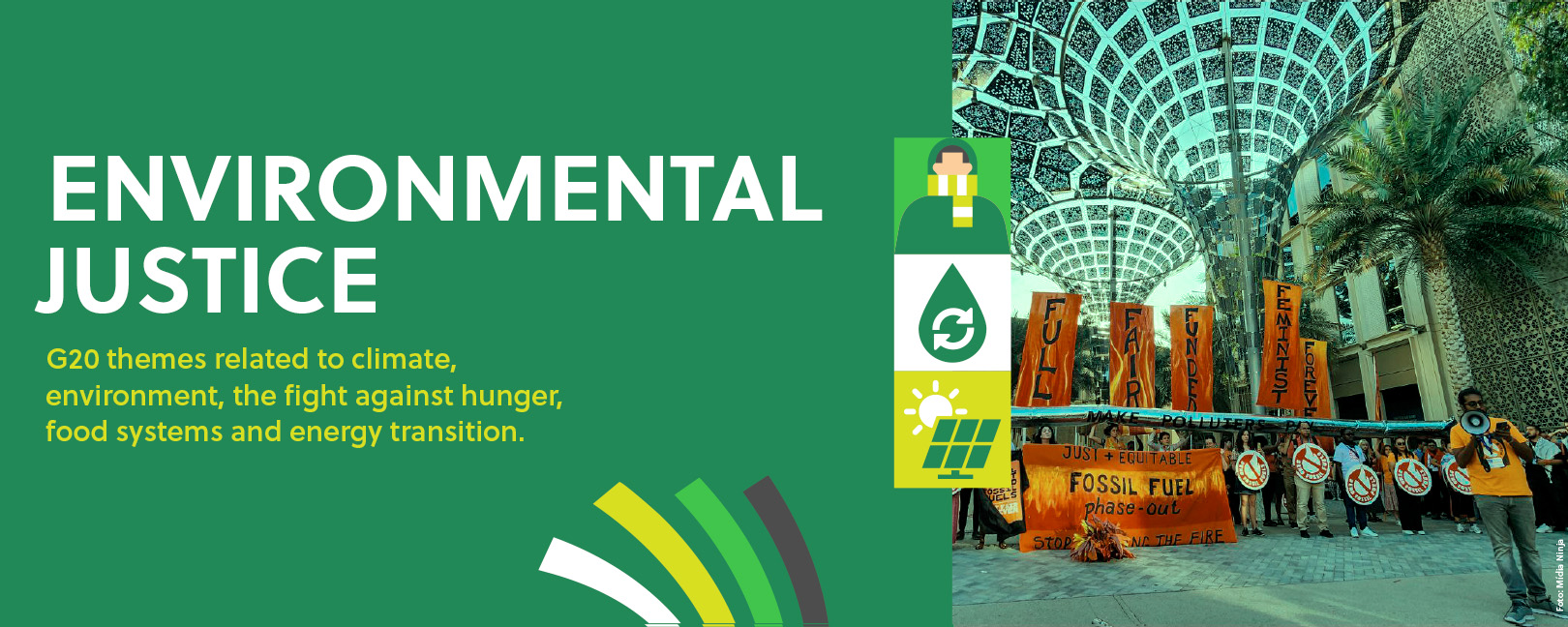
On Environmental Justice, we collaborate with civil society on proposals for socio-ecological transformation, highlighting climate change, fighting against hunger, agro-ecology and energy transition. Our focus will be on following up the Environment, Climate Justice and Just Energy Transition Task Force at the C20 (Civil Society Engagement Group).
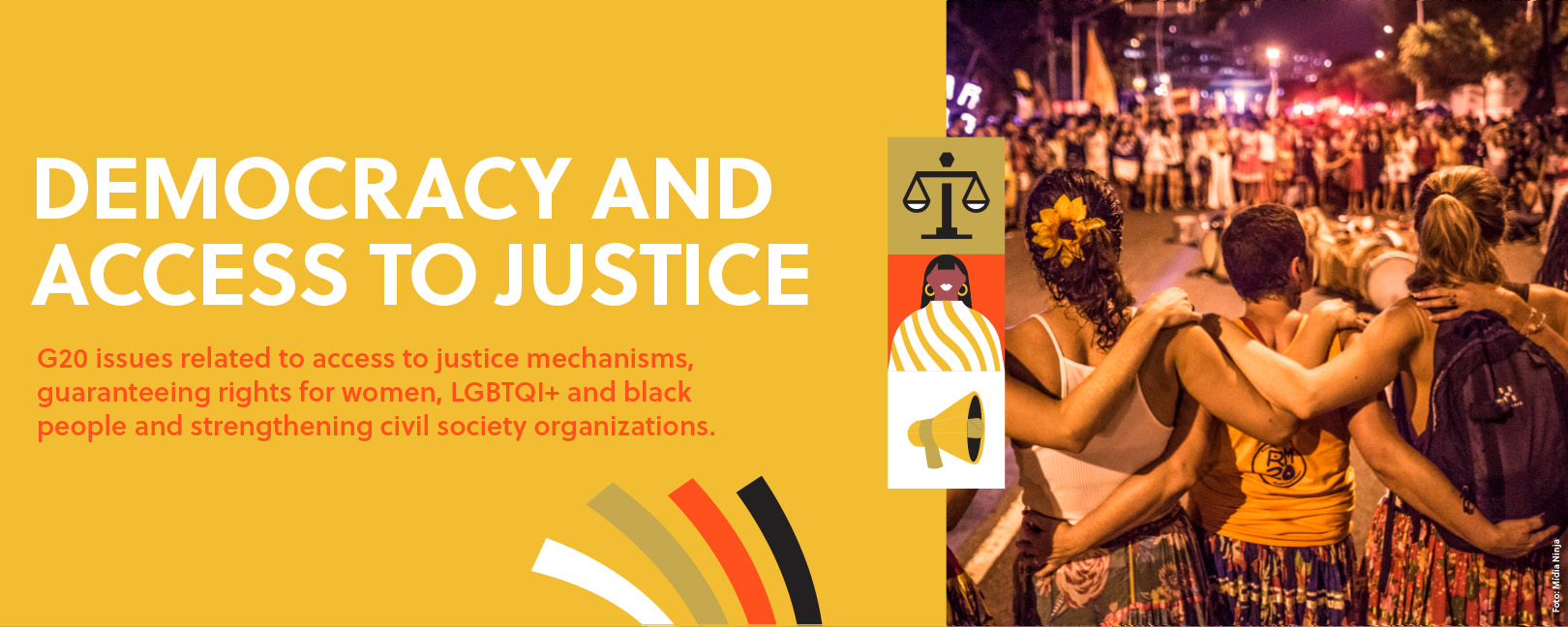
In the theme of Democracy and Human Rights, we advocate reforms to access to justice mechanisms, as well as strengthening civil society organizations and guaranteeing rights for women, LGBTQIA+ people and black people. So we're keeping an eye on the C20's Democratic Governance, Civic Space, Anti-Corruption and Access to Justice working group.
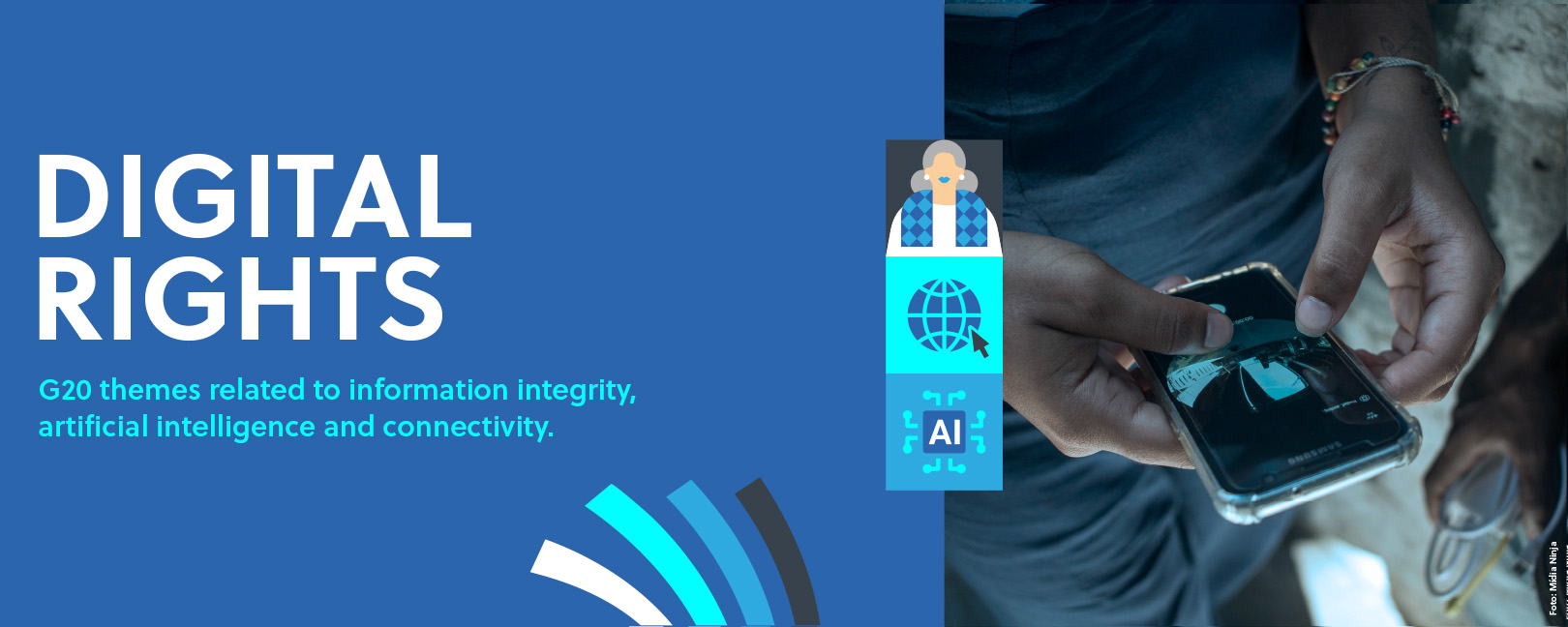
The Heinrich Böll Foundation in Brazil has a programmatic line called Tecnopolítica (Digital Rights and Policies). We want to collaborate within the search for solutions to the phenomena of disinformation and surveillance, with attention to the regulation of new technologies, such as Artificial Intelligence, so that they are not channels for violation of rights but instruments for improving living conditions in the face of so many global challenges. These issues are central to the discussions at T20, C20 and the official G20 Working Groups.
A better understanding of the G20
The G20 is a platform for economic and political cooperation between the world's twenty leading economies, founded in 1999 as a response to economic crises in the 1990s, such as the crises in Mexico, the Asian Tigers and Russia. Originally made up of the finance ministers and heads of central banks of nineteen countries and the European Union, the G20 was created to prevent future crises and form consensus on global financial and economic issues. With the recognition of changes in the world economy, including the growth of emerging economies and the relative decline in the weight of the G7 countries, the G20 has become a more comprehensive forum. Its founding members include Argentina, Australia, Brazil, Canada, China, France, Indonesia, Germany, Italy, Japan, Mexico, Russia, Saudi Arabia, South Korea, the United Kingdom, the United States and the European Union. In 2023, the African Union was invited to join the group, making the G20 representative of 85% of the world's GDP, around two thirds of the global population and more than 75% of world trade.
Credits: Booklet Guide to Understanding the G20
To make it easier to understand the complex G20 system in detail, the BRICS Policy Center, Jubileu Sul Brasil and Abong have put together a booklet on how to understand the G20 better, which can be found below in the Publications section.

Publications connected to the G20
T20 publications
C20 publications
Documentary miniseries “Por Dentro do G20”
The documentary miniseries “Por Dentro do G20”, conceived and produced by Joyce Souza, Fabio Maldonado and Sérgio Amadeu, our partners in the Tecnopolítica Podcast, is a production of TV Fórum @forumrevista), with the production of the Tecnopolítica Podcast and the support of the Heinrich Böll Brasil Foundation.
Comprising six episodes, the series “Inside the G20” offers an analysis of the role and challenges of the G20 on the global stage. Each episode addresses a specific theme, providing a comprehensive and critical overview of the workings of this important international group. The central and guiding themes of the episodes were:



